 The core message that Sen. Bernie Sanders (I-VT) delivered last month when he addressed Party leaders at the Summer Meeting of the Democratic National Committee entailed a lesson in electoral math, according to The Nation's John Nichols.
The core message that Sen. Bernie Sanders (I-VT) delivered last month when he addressed Party leaders at the Summer Meeting of the Democratic National Committee entailed a lesson in electoral math, according to The Nation's John Nichols.
"Democrats will not retain the White House, will not regain the Senate or the U.S. House, will not be successful in dozens of governor races across the country," Sanders observed, "unless we generate excitement and momentum to produce a huge voter turnout."
The "electoral math" to which both Sanders and Nichols refer is the math which, they argue, is achievable during the second stage of a Sanders-led, "political revolution". That would be a phase --- once Sanders was able to secure the Democratic Party nomination and prior to the November 2016 election --- in which it would be all but impossible for the corporate-owned media and Democratic Party establishment to conceal or evade Sanders' issue-based message. Even those members of the Democratic Party whose careers have been linked to monetary contributions from what Noam Chomsky describes as "the substantial people" would, at that point, be hard-pressed to stand in the way of the revolution's momentum.
But, for now, Sanders is in the midst of the far more difficult first stage --- one that requires overcoming the corporate-owned media's marginalization of his campaign. It also entails overcoming the exercise in self-protection by the Democratic Party establishment. Long before the first vote has been cast in either a caucus or primary, the Clinton campaign boasted that its backroom deals had already netted one-fifth of the delegates needed to secure the nomination from amongst the unelected super-delegates --- party leaders who do not have to abide by the will of the electorate in their respective states. Simultaneously Rep. Debbie Wasserman-Schultz (D-FL), the DNC chair and former co-chair of the Hillary Clinton 2008 campaign, has sought to blunt Sanders' attempt to eliminate the "democracy deficit" --- the significant gap between the policy positions of the electorate and their "representatives" occasioned by the manner in which elections are skillfully managed to avoid issues and marginalize the underlying population --- with her imposition of severe limits on the number and timing of the Democratic Party Presidential Debates.
Sanders has countered those maneuvers, somewhat, by relying instead upon alternative and social media, drawing huge crowds, growing an army of grass roots volunteers and, most importantly, offering both authenticity and substance in his campaign.
The results, to date, have been encouraging for the Vermont Senator. Just a few months ago, Clinton's leads in New Hampshire and Iowa appeared insurmountable. But now, as New Hampshire Public Radio noted recently, "The latest polls show Sanders leading Clinton by 22 points in New Hampshire and by 10 points in Iowa." Some who have examined polling trends, such as historian Eric Zuesse, have gone so far as to boldly predict Sanders will become the next President of the United States.
That's the current battle of phase one of the electoral math. More interesting, however, is the dynamics of what could become the second and third phases of a Sanders-led democratic revolution...


 Trump Gets Trumped in Our Musky Year-End Roundtable: 'BradCast' 12/19/24
Trump Gets Trumped in Our Musky Year-End Roundtable: 'BradCast' 12/19/24 'Green News Report' 12/17/24
'Green News Report' 12/17/24
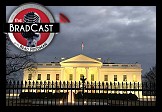 About Some of Trump's
About Some of Trump's Trump Family Corruption Cometh...So Does Our Oppo-sition: 'BradCast' 12/17/24
Trump Family Corruption Cometh...So Does Our Oppo-sition: 'BradCast' 12/17/24 'Green News Report' 12/17/24
'Green News Report' 12/17/24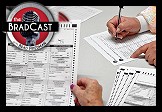 Mistallied Contests Found in OH County, as Oligarchy Rises in D.C.: 'BradCast' 12/16/24
Mistallied Contests Found in OH County, as Oligarchy Rises in D.C.: 'BradCast' 12/16/24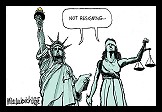 Sunday 'Barrel Bottom' Toons
Sunday 'Barrel Bottom' Toons Trump Admits He Can't Lower Grocery Prices (Biden Just Did): 'BradCast' 12/12/24
Trump Admits He Can't Lower Grocery Prices (Biden Just Did): 'BradCast' 12/12/24 'Green News Report' 12/12/24
'Green News Report' 12/12/24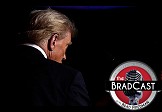 What 'Unprecedented and Powerful Mandate'?: 'BradCast' 12/11/24
What 'Unprecedented and Powerful Mandate'?: 'BradCast' 12/11/24 Trump Barely Won Nationally, But Won 'News Deserts' By a Landslide: 'BradCast' 12/10
Trump Barely Won Nationally, But Won 'News Deserts' By a Landslide: 'BradCast' 12/10 'Green News Report' 12/10/24
'Green News Report' 12/10/24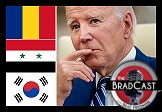 Bad Weekend for Authorit-arianism; Also: To Pardon or Not?: 'BradCast' 12/9/24
Bad Weekend for Authorit-arianism; Also: To Pardon or Not?: 'BradCast' 12/9/24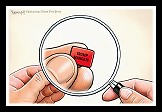 Sunday 'Teeny Tiny' Toons
Sunday 'Teeny Tiny' Toons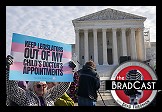 Fox 'News' and GOP Get Their Hateful War on Trans Kids at SCOTUS: 'BradCast' 12/5/24
Fox 'News' and GOP Get Their Hateful War on Trans Kids at SCOTUS: 'BradCast' 12/5/24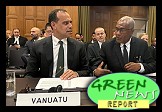 'Green News Report' 12/5/24
'Green News Report' 12/5/24 'Mind Boggles at Potential Corruption' in Trump Scheme: 'BradCast' 12/4/24
'Mind Boggles at Potential Corruption' in Trump Scheme: 'BradCast' 12/4/24 In Defense of Democracy from S. Korea to N. Carolina: 'BradCast' 12/3/24
In Defense of Democracy from S. Korea to N. Carolina: 'BradCast' 12/3/24 Hunter's Pardon: 'BradCast' 12/2/24
Hunter's Pardon: 'BradCast' 12/2/24 How (and Why!) to 'Extend Olive Branch' to MAGA Members: 'BradCast' 11/21/24
How (and Why!) to 'Extend Olive Branch' to MAGA Members: 'BradCast' 11/21/24 Former Prosecutor: Sentence Trump in NY Before Taking Office: 'BradCast' 11/20/24
Former Prosecutor: Sentence Trump in NY Before Taking Office: 'BradCast' 11/20/24 'Bullet Ballot' Claims, Other Arguments for Hand-Counting 2024: 'BradCast' 11/19/24
'Bullet Ballot' Claims, Other Arguments for Hand-Counting 2024: 'BradCast' 11/19/24 Trump Already Violating Law During Transition: 'BradCast' 11/18/24
Trump Already Violating Law During Transition: 'BradCast' 11/18/24 Computer Experts Ask Harris to Seek Hand-Counts After Breaches: 'BradCast' 11/14/24
Computer Experts Ask Harris to Seek Hand-Counts After Breaches: 'BradCast' 11/14/24
 VA GOP VOTER REG FRAUDSTER OFF HOOK
VA GOP VOTER REG FRAUDSTER OFF HOOK Criminal GOP Voter Registration Fraud Probe Expanding in VA
Criminal GOP Voter Registration Fraud Probe Expanding in VA DOJ PROBE SOUGHT AFTER VA ARREST
DOJ PROBE SOUGHT AFTER VA ARREST Arrest in VA: GOP Voter Reg Scandal Widens
Arrest in VA: GOP Voter Reg Scandal Widens ALL TOGETHER: ROVE, SPROUL, KOCHS, RNC
ALL TOGETHER: ROVE, SPROUL, KOCHS, RNC LATimes: RNC's 'Fired' Sproul Working for Repubs in 'as Many as 30 States'
LATimes: RNC's 'Fired' Sproul Working for Repubs in 'as Many as 30 States' 'Fired' Sproul Group 'Cloned', Still Working for Republicans in At Least 10 States
'Fired' Sproul Group 'Cloned', Still Working for Republicans in At Least 10 States FINALLY: FOX ON GOP REG FRAUD SCANDAL
FINALLY: FOX ON GOP REG FRAUD SCANDAL COLORADO FOLLOWS FLORIDA WITH GOP CRIMINAL INVESTIGATION
COLORADO FOLLOWS FLORIDA WITH GOP CRIMINAL INVESTIGATION CRIMINAL PROBE LAUNCHED INTO GOP VOTER REGISTRATION FRAUD SCANDAL IN FL
CRIMINAL PROBE LAUNCHED INTO GOP VOTER REGISTRATION FRAUD SCANDAL IN FL Brad Breaks PA Photo ID & GOP Registration Fraud Scandal News on Hartmann TV
Brad Breaks PA Photo ID & GOP Registration Fraud Scandal News on Hartmann TV  CAUGHT ON TAPE: COORDINATED NATIONWIDE GOP VOTER REG SCAM
CAUGHT ON TAPE: COORDINATED NATIONWIDE GOP VOTER REG SCAM CRIMINAL ELECTION FRAUD COMPLAINT FILED AGAINST GOP 'FRAUD' FIRM
CRIMINAL ELECTION FRAUD COMPLAINT FILED AGAINST GOP 'FRAUD' FIRM RICK SCOTT GETS ROLLED IN GOP REGISTRATION FRAUD SCANDAL
RICK SCOTT GETS ROLLED IN GOP REGISTRATION FRAUD SCANDAL VIDEO: Brad Breaks GOP Reg Fraud Scandal on Hartmann TV
VIDEO: Brad Breaks GOP Reg Fraud Scandal on Hartmann TV RNC FIRES NATIONAL VOTER REGISTRATION FIRM FOR FRAUD
RNC FIRES NATIONAL VOTER REGISTRATION FIRM FOR FRAUD EXCLUSIVE: Intvw w/ FL Official Who First Discovered GOP Reg Fraud
EXCLUSIVE: Intvw w/ FL Official Who First Discovered GOP Reg Fraud GOP REGISTRATION FRAUD FOUND IN FL
GOP REGISTRATION FRAUD FOUND IN FL



















 Seriously. To hell with false balance.
Seriously. To hell with false balance. Today's
Today's  Standing at a podium before the Democratic National Committee (DNC), within arms length of DNC Chair and 2008 Hillary Clinton national campaign co-chair, Rep. Debbie Wasserman-Schultz (D-FL), former Maryland Governor and now a 2016 Democratic Presidential candidate Martin O'Malley
Standing at a podium before the Democratic National Committee (DNC), within arms length of DNC Chair and 2008 Hillary Clinton national campaign co-chair, Rep. Debbie Wasserman-Schultz (D-FL), former Maryland Governor and now a 2016 Democratic Presidential candidate Martin O'Malley  Initially utilized by William Shakespeare in Hamlet, the phrase "to be hoisted by his own petard" now refers to someone who is hurt or destroyed by their own plot or device. That phrase may well come into play by July 18, 2016 when the Republican Party gathers in Cleveland for its national convention --- precisely because of the undemocratic nature of the GOP's own primary rules.
Initially utilized by William Shakespeare in Hamlet, the phrase "to be hoisted by his own petard" now refers to someone who is hurt or destroyed by their own plot or device. That phrase may well come into play by July 18, 2016 when the Republican Party gathers in Cleveland for its national convention --- precisely because of the undemocratic nature of the GOP's own primary rules. 








 I'm back on
I'm back on  It's our last
It's our last  Greece is the word! On today's
Greece is the word! On today's  Lots of breaking news today on
Lots of breaking news today on  As the corporate media continues to
As the corporate media continues to  I'm joined today on
I'm joined today on  With Wisconsin Gov. Scott Walker, incredibly enough, having
With Wisconsin Gov. Scott Walker, incredibly enough, having 














